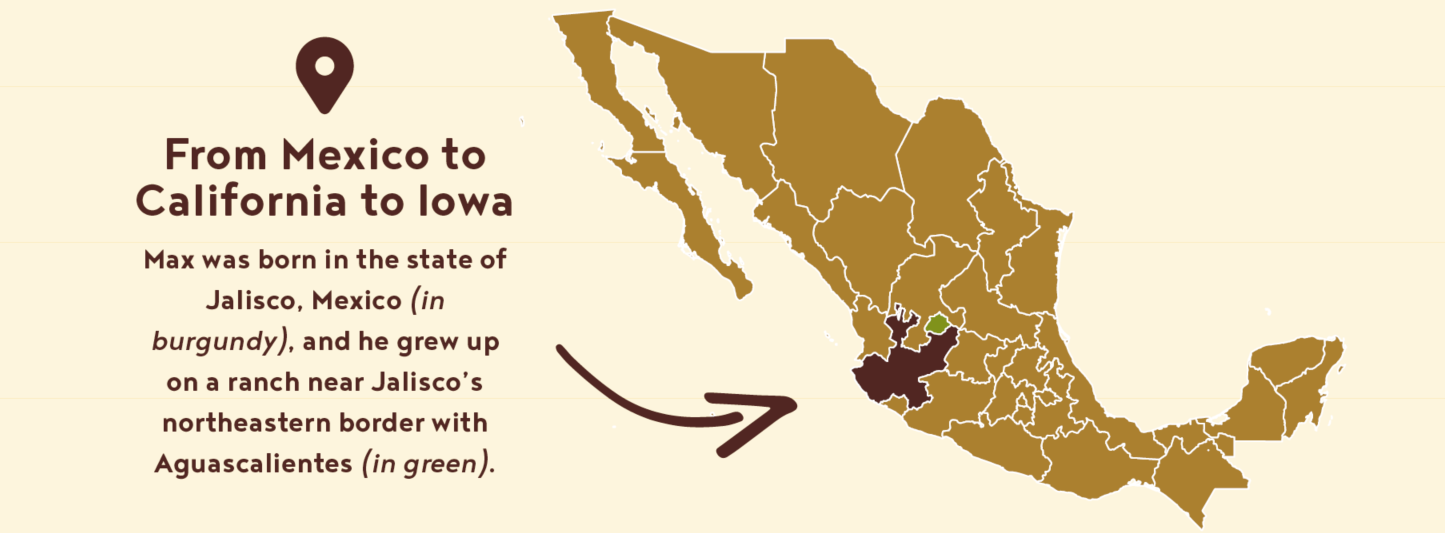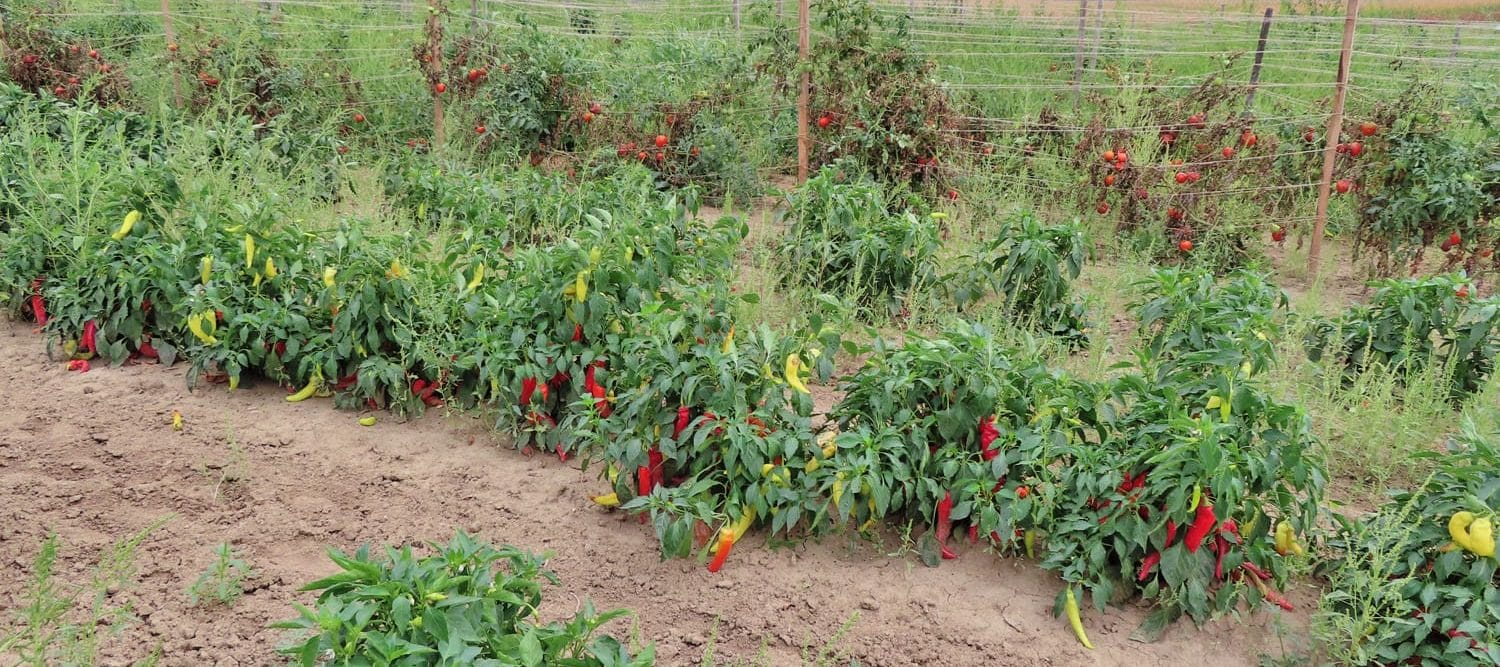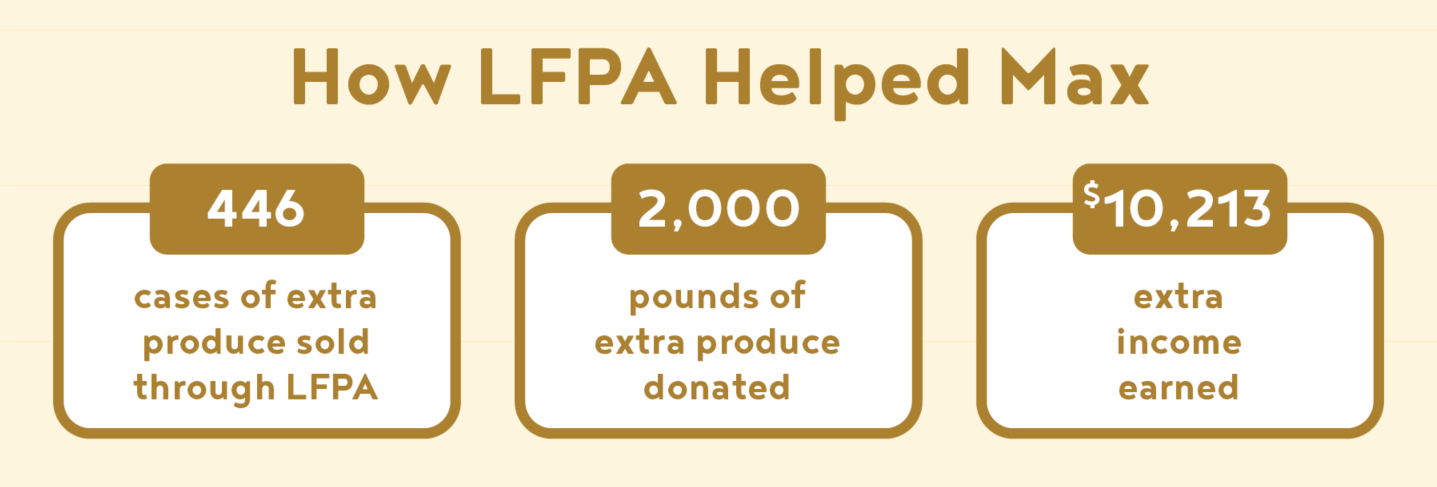Farming From the Heart
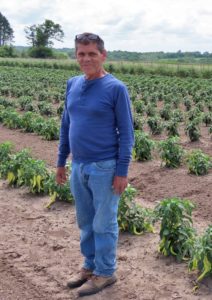 For Max Chavez, sharing his harvest with others brings joy and helps him overcome barriers as a Latino farmer in Iowa.
For Max Chavez, sharing his harvest with others brings joy and helps him overcome barriers as a Latino farmer in Iowa.
“Max, can we count on tomatoes from you this season?” asks the hostess of Pueblo Viejo Mexican Restaurant as Max and I head inside on a pleasant day in April 2023. It was my first meeting with Maximilliano Chavez, a farmer who goes by the name Max, and he wanted to meet here, outside this restaurant on the east side of Des Moines, Iowa.
Smiling proudly, he tells me, in Spanish, “They buy my tomatoes here. They do great things with my produce.”
Part of the reason we were gathering was so I could learn more about Max’s farm and his experience as a Latino farmer in Iowa. As PFI’s senior Latino engagement coordinator, part of my role is to build relationships with Iowa’s Spanish-speaking farmers and to understand their barriers and goals. My other task was to help Max fill out his application to join Iowa’s Local Food Purchasing Assistance Program.
What better way to start our relationship than over a plate of delicious food.
Learnings From Mexico
For the past 20 years, Max has operated Sunny Valley Vegetables in the Des Moines area, selling his produce from his well-known vegetable stand on Des Moines’ south side. For the past two years, he has rented 10 acres of land in Carlisle from one of his many customers. Before that, Max farmed near Easter Lake in Des Moines’ southeastern corner.
His agricultural roots are deep. He grew up farming in Mexico before moving to California as a young man, where he learned as much as possible from the nation’s top horticulture-producing state, including how to care for grapes. In 1999, Max moved to Iowa for “some peace and quiet” after the hustle and bustle of California life. Once here, he started working in Iowa’s grape sector, helping farmers plant and maintain their vineyards. Now, Max runs his own farm where he proudly grows heirloom tomatoes, zucchini, melons, jalapenos, cucumbers, bell peppers and hot and sweet banana peppers following organic practices, though he’s not certified. In 2023, he added a new crop to his offerings: Jamaica (hibiscus flowers), an ingredient popular in Mexican cuisine for its refreshing taste.
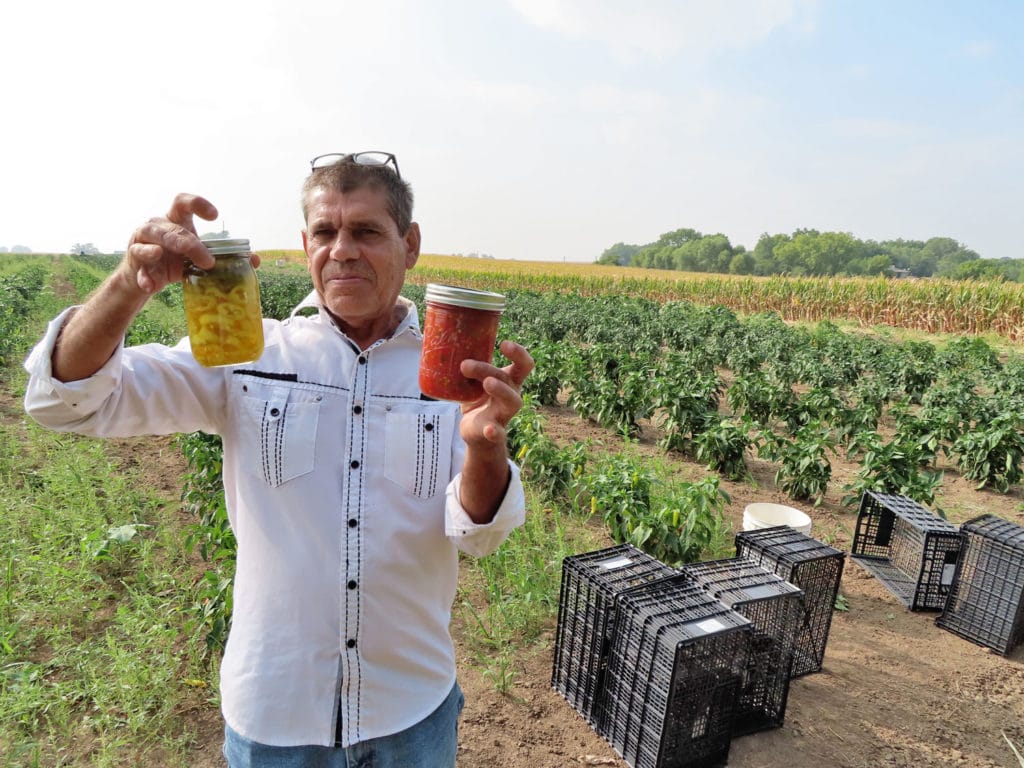
Max holds jars of pickled hot banana and jalapeno peppers, and tomato-based salsa – all made using his produce.
From my first meeting with Max, I felt like I was talking to my Abuelito (a term of endearment for “grandfather” in Spanish). In Mexican culture, our grandparents are esteemed and highly respected. We learn from watching them and hearing about their lives and stories. And deep connections are often made through meals and surrounded by food. Since that first meal we shared at Pueblo Viejo, I’ve met with Max several more times.
Our conversations take place in Spanish, which lets me ask better questions and enables him to be more candid and share the depth of his experiences. He has shared stories of prejudice he’s encountered, and how he’s persevered through physical and mental hardships. I’ve also learned about Max’s gift for growing crops, his passion for local food, his generosity (which has sometimes led to his being taken advantage of), the added hurdles he’s faced as an immigrant farmer working in a second language and his drive to succeed.
Max was born in Jalisco, Mexico, in the country’s southwest, and he grew up on a ranch near Jalisco’s northeastern border with Aguascalientes, a centrally located state in Mexico. His first interaction with agriculture was when his parents’ boss challenged him to grow watermelons – a difficult undertaking on more than one level. Watermelon thrives in moist soil environments, but Las Aguas, as the area is often called, has a semi-arid climate, despite its name meaning “the waters.” Young Max proved himself so well that many started to take notice – by sneaking in to glean fruit from his small field.
The thefts upset him, but Max recalls how his mentor would say, “Let them. They are hungry, and you have enough to share.” That message has stuck with him. Recognizing his green thumb, Max’s mentor encouraged him to try other crops, supplying seeds for tomatoes, jalapenos, avocado and oranges. He was successful at all of it, but decided to move to the United States in the 1990s.
From Hobby Gardener to Full-Time Farmer
Once here, he brought the same open mind and willingness to learn from his mistakes. “I’ve always learned from firsthand experience,” Max says. He taught himself the skills he needed through trial and error and applied his knowledge to hobby gardens he kept in California and southern Iowa while working for commercial agricultural companies. He recalls how many of his co-workers and neighbors at the time regularly asked him for fresh produce, and he would sell or donate as much as he could.
Things got to a point, however, where Max couldn’t keep up with the demand for his homegrown food. At the time, he was still growing produce in his backyard. Seeing the steady interest – and passionate about local, quality food – Max decided to seek more land and farm full-time. “I realized I couldn’t keep up with the demand as a hobby,” Max says. Today, most of his customers are from Carlisle and Des Moines. But he has some who travel across town from Johnston, Iowa. A one-man operation, Max manages all aspects of the business. He uses a rain-fed system to water his crops, walks his fields daily to scout for weeds and handles all marketing, selling to local taco trucks, restaurants and small mom-and-pop shops on the south side of Des Moines.
In 2023, he participated in the Iowa Local Food Purchasing Assistance Program, a state program that aims to strengthen the food system and support local, regional and underserved producers. Farmers who sign up gain access to new markets, which can boost their income while connecting communities to more locally raised food. PFI helped Max become a registered vendor through LFPA. As a result, Sunny Valley Vegetables is eligible to help fill weekly orders and deliveries to Food Bank of Iowa and Eat Greater Des Moines.
Max had long wanted to connect with food rescue organizations to help tackle food waste from his fields – a concern for him because, as a one-man operation, he is unable to fully harvest by the end of the season. This year was different, however. Because of LFPA, Max says he was able to sell thousands of dollars of produce into the program. And thanks to the connections he made, he was able to donate a further 2,000 pounds of produce to both organizations.
Farming for Community
One of Max’s biggest challenges has been finding reliable and trustworthy business partners. Discrimination has been a recurring problem. He shared stories of blatant prejudice, such as getting “scammed on land lease prices” and having his applications for aid to various government programs refused with little context. Some of his neighbors have also been unwelcoming, he says, recounting how he’s been told by other farmers “there’s no space for farmers like him” in Iowa. Another hurdle has been that many programs designed to help farmers often overlook basic issues of language and technological access. In today’s world, it is easy to assume people universally have email and internet access and can easily navigate it. This was not Max’s case; he only has his Android phone and no email. This is one reason why he needed my help to sign up for the Local Food Purchasing Assistance Program.
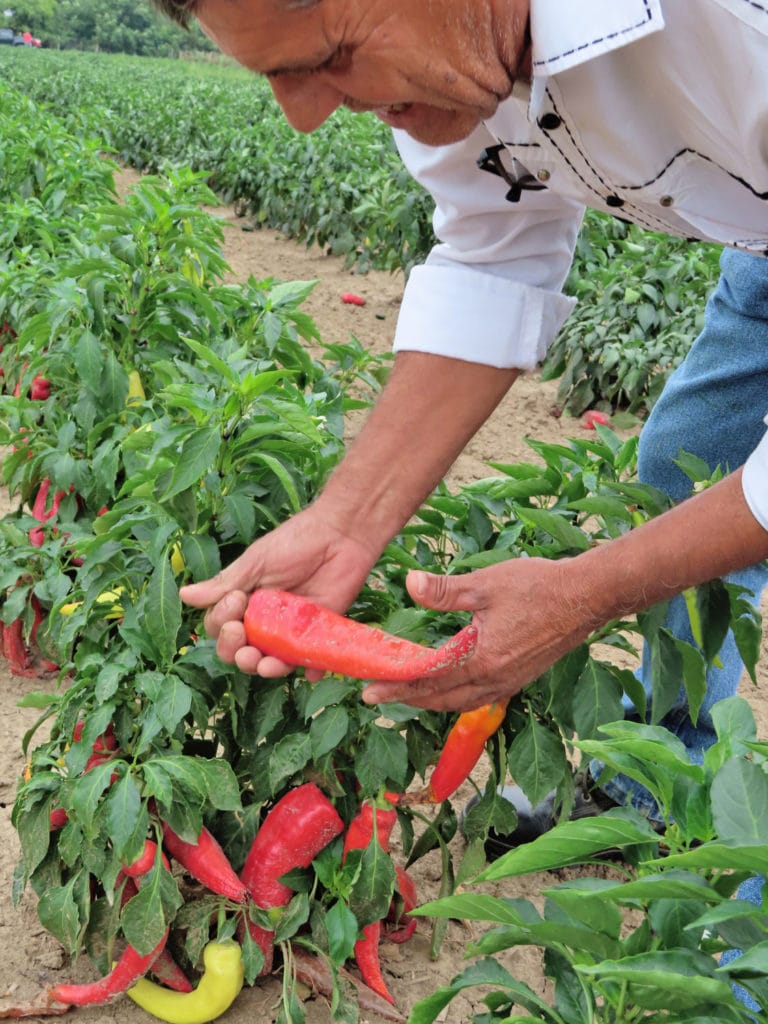 View image
View image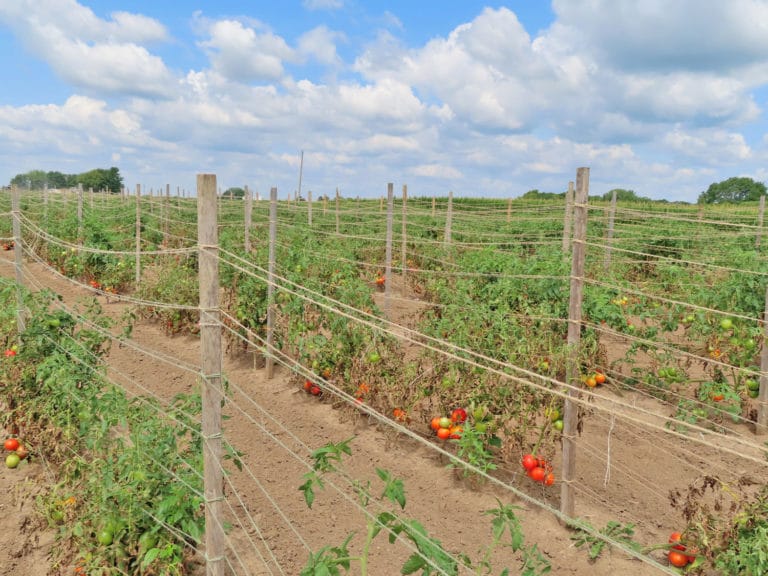 View image
View image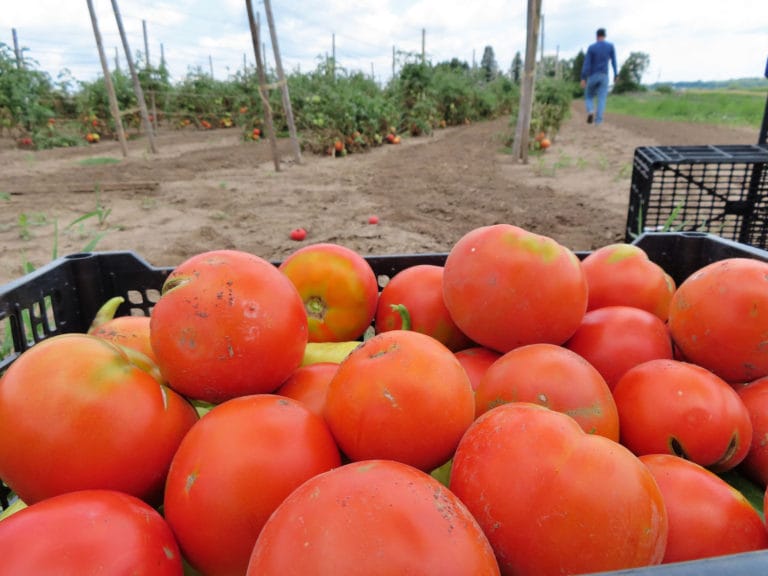 View image
View image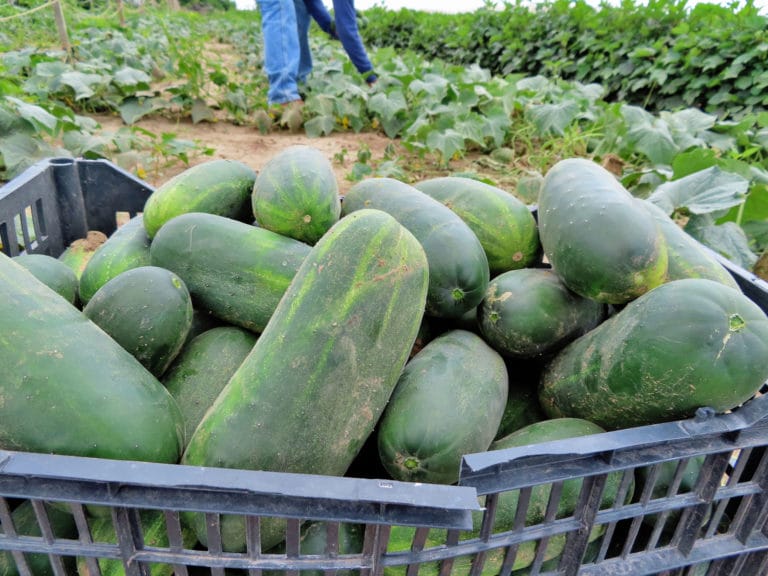 View image
View imageMax has also craved the ability to connect with a community of farming peers – like Practical Farmers of Iowa – but didn’t know of any that existed for Latino farmers in the Midwest. “I’ve learned so much, and I want to share it with others who want to learn,” Max says. Having connected with PFI, he’s now eager to get more involved. In September, Max joined PFI’s booth for a few hours at the Latino Festival in downtown Des Moines to share his experience with people. He has also signed up to be a trainer in PFI’s Labor4Learning program in 2024.
His ultimate goal is to create a commercial-grade kitchen where he can make authentic salsas and hold workshops for his community.
“I struggled so much to get here, with little to no help, and I don’t want anyone to go through that. It’s hard. It feels awful.”
– Max Chavez
Despite the many challenges, Max has remained steadfast in pursuit of his dreams. He consistently shows up for his community – and appreciates that they, in turn, show up for him.
He sees the beauty and importance of local foods in our communities, and loves working with fresh ingredients. He says he cooks everyday and loves it – and he expresses great satisfaction that he has forged a devoted customer base because of the quality of his produce. “Not only Latinos like my produce, but also my white customers,” Max says. “They love the chiles! It makes me so happy to share that with everyone.”
The sentiment is characteristic of Max’s generous spirit. Whenever I meet him, in classic Mexican Abuelito style, he never fails to share crates of fresh produce with me. I always leave with less than he wants, which causes him to shake his head at me. “There are only a few times in the year where we can eat this well,” he tells me. “We need to take advantage of that.”
At the end of a recent visit, I relent and end up taking at least 50 pounds of produce to share with the rest of the PFI office and with my family in Des Moines.
Max smiles – sharing the bounty is what gives him joy, and sustains him through hardship. “This, I want to continue doing this,” he says. “I’m happy with the work I do.”

